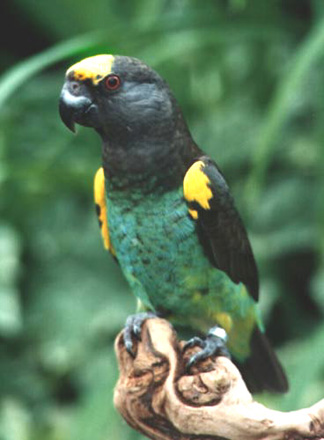|
The Society:
 HOME
HOME
 Introduction
Introduction
 Objects
Objects
 Join or renew
Join or renew
 Guest Book
Guest Book
 Hall of Fame Hall of Fame
 Products For Sale
Products For Sale
 Classifieds Ads
Classifieds Ads
 Contact Us
Contact Us
The Avicultural Journal
 Journal Archives
Journal Archives
 Exotic Bird Species
Exotic Bird Species
 Budgerigar Information
Budgerigar Information
 Canary Information
Canary Information
 Parrot Information
Parrot Information
 Finch Information
Finch Information
 General Information
General Information
 First Breeding Awards
First Breeding Awards
Affiliations:
 Affiliated Clubs
Affiliated Clubs
 Parrot Association of Canada
Parrot Association of Canada
 Avian Preservation Foundatn
Avian Preservation Foundatn
Showing Birds:
 Canadian Shows
Canadian Shows
 National Results
National Results
 Accredited Judges
Accredited Judges
Leg Bands:
 General Information
General Information
 Band Size Chart
Band Size Chart
 Trace a Band
Trace a Band
 Band Prices
Band Prices
 Order Bands
Order Bands
 Current Ring Codes
Current Ring Codes
Links:
 Links
Links
 Copyright & Privacy Policies
Copyright & Privacy Policies
|
MEYERS PARROT
(Poicephalus Meyeri)

The Meyers Parrot originates from Central & Eastern Africa - in 6 subspecies, the colour variations being primarily on belly & rump.
Your new pet has been hand-reared and has no fear of humans. He/she should be treated with respect and will respond with affection and trust.
Feeding
Feed good quality parrot mix (with dried fruit included), supplemented with extra peanuts, pinenuts, peppers, hemp and safflower but note that hemp is very fattening and should only be given in small quantities. Fresh fruit should be offered daily, grapes, apple, orange, pear, pomegranate and banana are readily taken, but most birds have their preferences. Fresh green food, i.e. chickweed, lettuce, celery, dandelion and sowthistle are all beneficial for them. Also, as a treat, offer millet sprays, various nuts including walnut, almond, brazil etc. (shells cracked but not completely removed). Cuttlefish, mineral block, grit and shell should always be available to them. Give fresh water daily. Cubed carrot and sweetcorn (fresh or tinned - drained) should be offered regularly as a source of vitamin A which they need. As a general tonic, a little Nutrobal or Avimix sprinkled on their fruit twice a week is beneficial.
NOTE: DO NOT OFFER:- CHOCOLATE, ALCOHOL or AVOCADO PEAR as these are poisonous to parrots.
ACCOMMODATION
A cage large enough for the bird to exercise it's wings should be provided, but it will expect to be out of it's cage most of the time! Perches should be of natural wood, i.e. willow or apple, if possible, as this keeps the feet and claws healthy. A small dish (large ash-tray size) of water should be offered daily for the bird to bathe in as they love water.
Talking Ability
Meyers are capable of talking although probably only a few words. They tend to learn from a woman's voice easiest as the pitch is higher than a man's. Repeat words slowly and often when there are no other distractions and your bird should learn quite quickly.
|